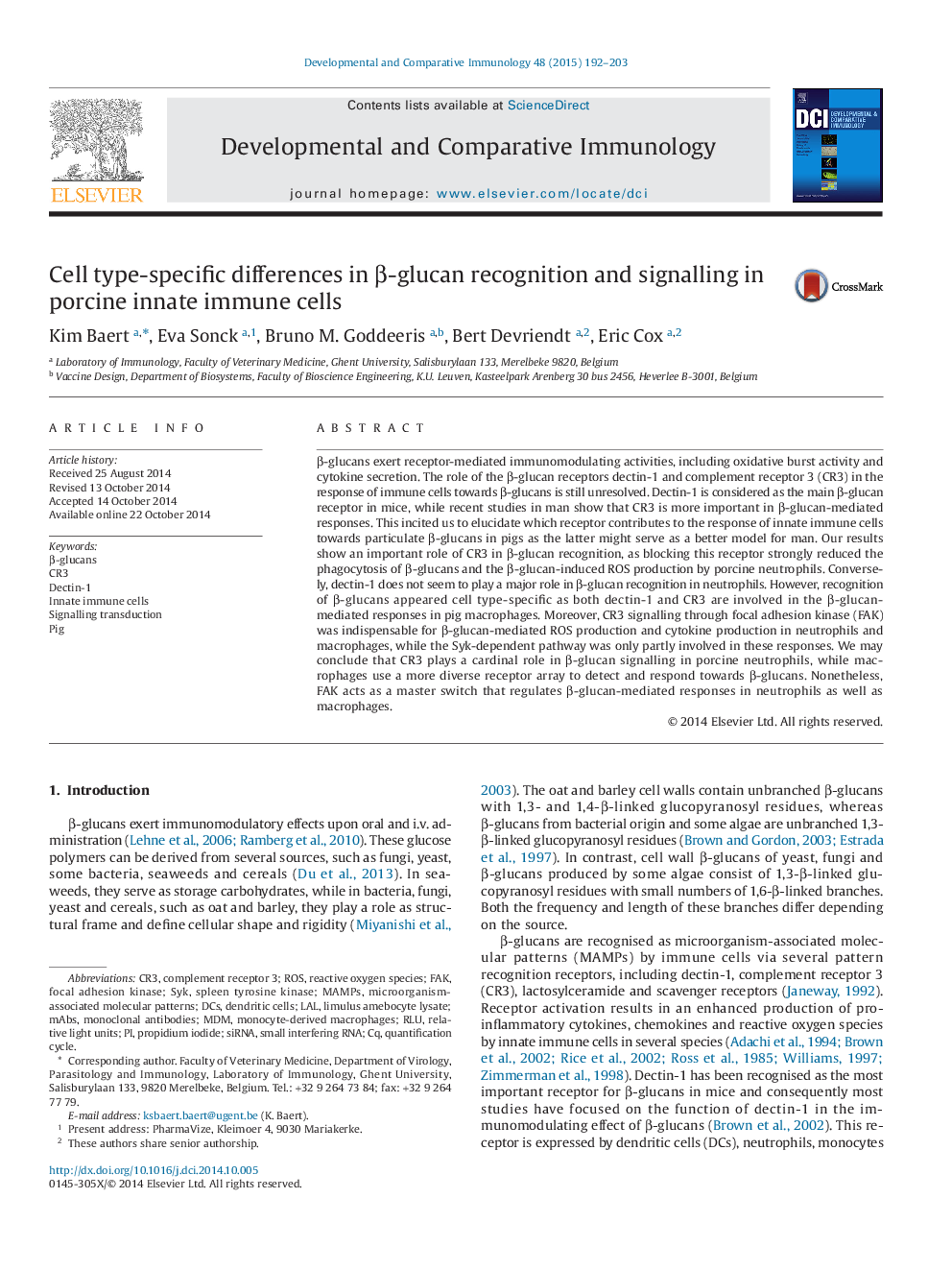| Article ID | Journal | Published Year | Pages | File Type |
|---|---|---|---|---|
| 10971548 | Developmental & Comparative Immunology | 2015 | 12 Pages |
Abstract
β-glucans exert receptor-mediated immunomodulating activities, including oxidative burst activity and cytokine secretion. The role of the β-glucan receptors dectin-1 and complement receptor 3 (CR3) in the response of immune cells towards β-glucans is still unresolved. Dectin-1 is considered as the main β-glucan receptor in mice, while recent studies in man show that CR3 is more important in β-glucan-mediated responses. This incited us to elucidate which receptor contributes to the response of innate immune cells towards particulate β-glucans in pigs as the latter might serve as a better model for man. Our results show an important role of CR3 in β-glucan recognition, as blocking this receptor strongly reduced the phagocytosis of β-glucans and the β-glucan-induced ROS production by porcine neutrophils. Conversely, dectin-1 does not seem to play a major role in β-glucan recognition in neutrophils. However, recognition of β-glucans appeared cell type-specific as both dectin-1 and CR3 are involved in the β-glucan-mediated responses in pig macrophages. Moreover, CR3 signalling through focal adhesion kinase (FAK) was indispensable for β-glucan-mediated ROS production and cytokine production in neutrophils and macrophages, while the Syk-dependent pathway was only partly involved in these responses. We may conclude that CR3 plays a cardinal role in β-glucan signalling in porcine neutrophils, while macrophages use a more diverse receptor array to detect and respond towards β-glucans. Nonetheless, FAK acts as a master switch that regulates β-glucan-mediated responses in neutrophils as well as macrophages.
Keywords
Limulus Amebocyte LysateCR3LALRLUmAbsFAKMDMDCsSmall interfering RNAROSsiRNAβ-glucansSykPigDectin-1Innate immune cellsDendritic cellsspleen tyrosine kinaseMAMPSmonocyte-derived macrophagesrelative light unitsMonoclonal antibodiesPropidium iodidequantification cyclefocal adhesion kinaseReactive oxygen speciesComplement receptor 3
Related Topics
Life Sciences
Biochemistry, Genetics and Molecular Biology
Developmental Biology
Authors
Kim Baert, Eva Sonck, Bruno M. Goddeeris, Bert Devriendt, Eric Cox,
